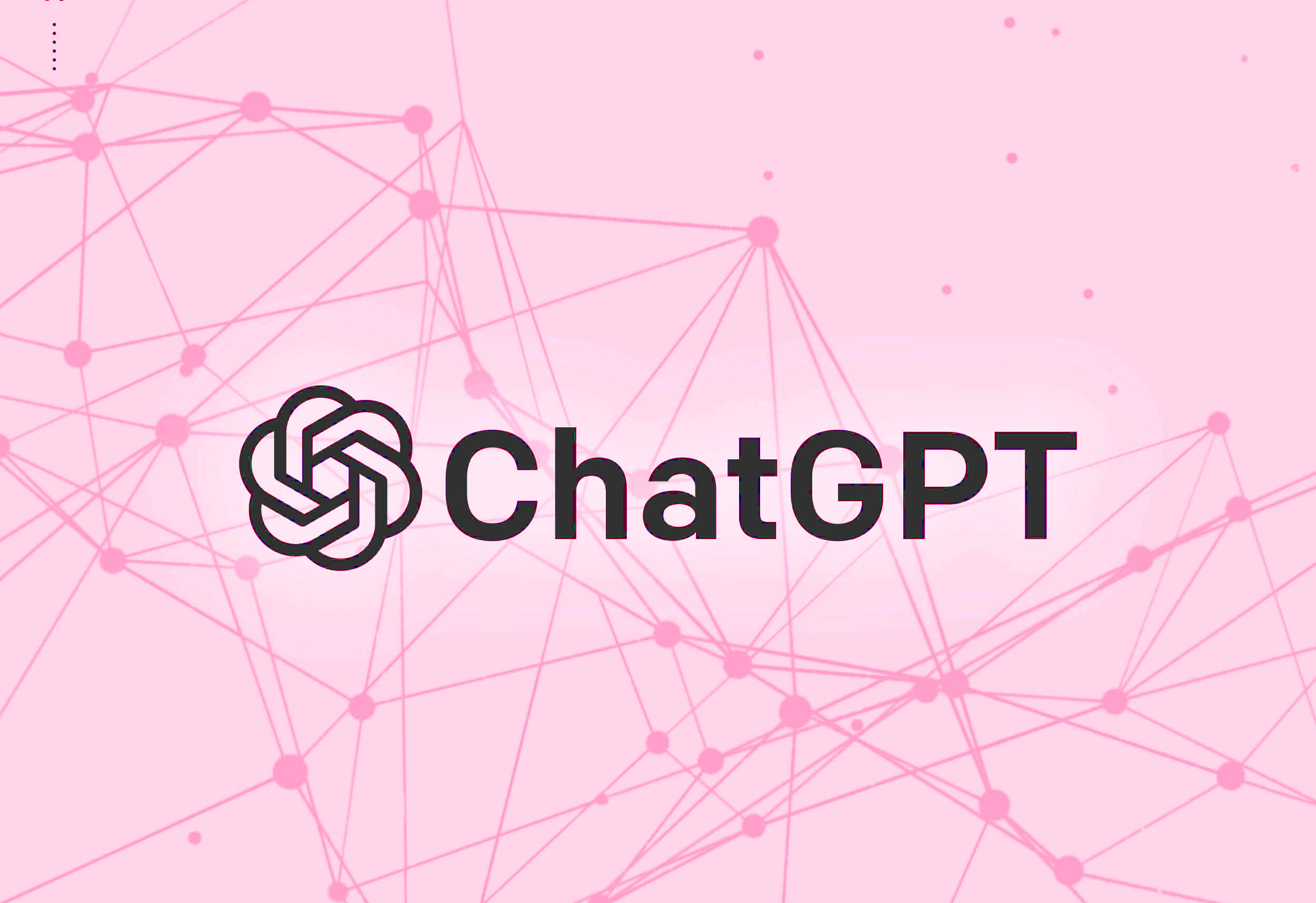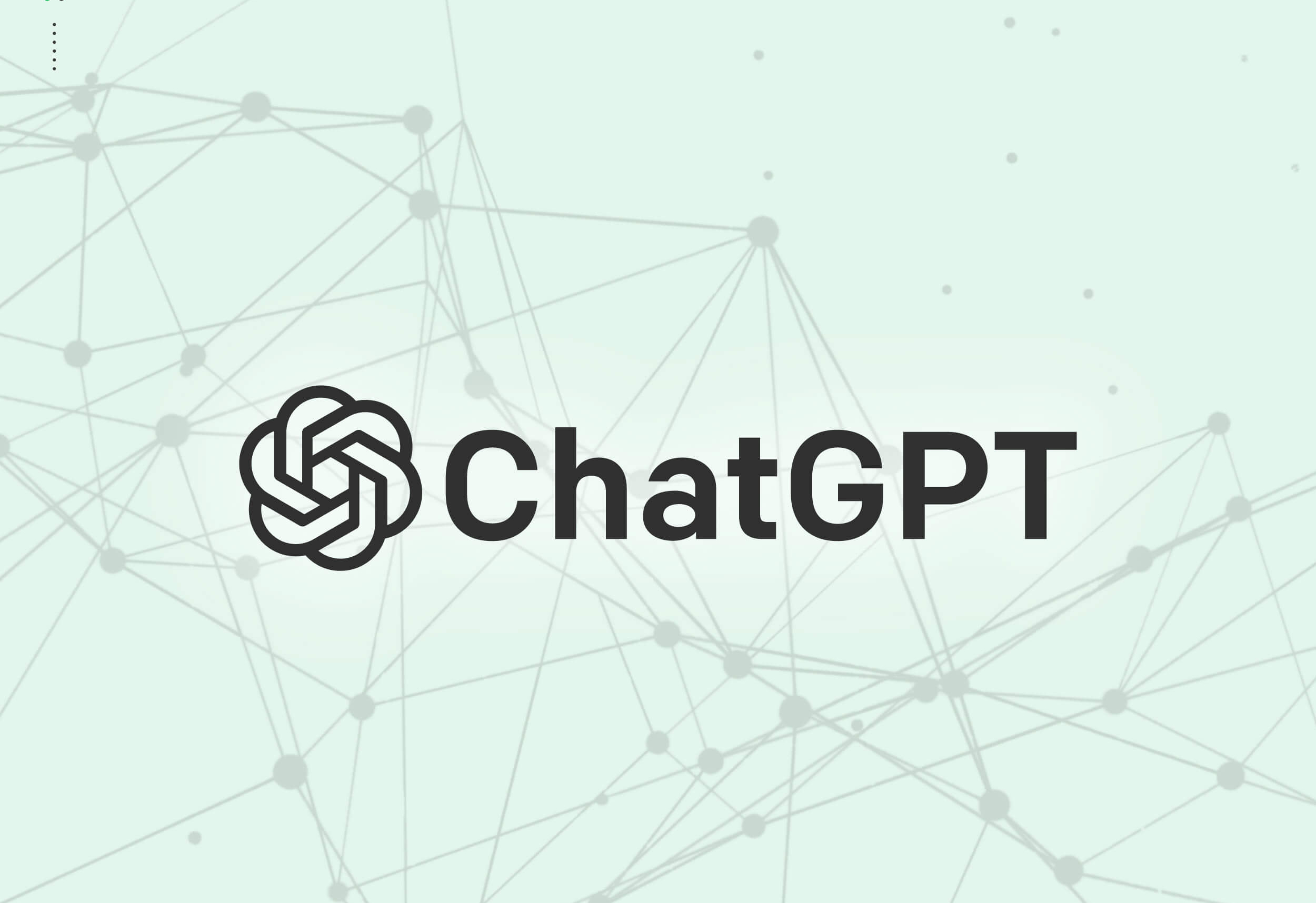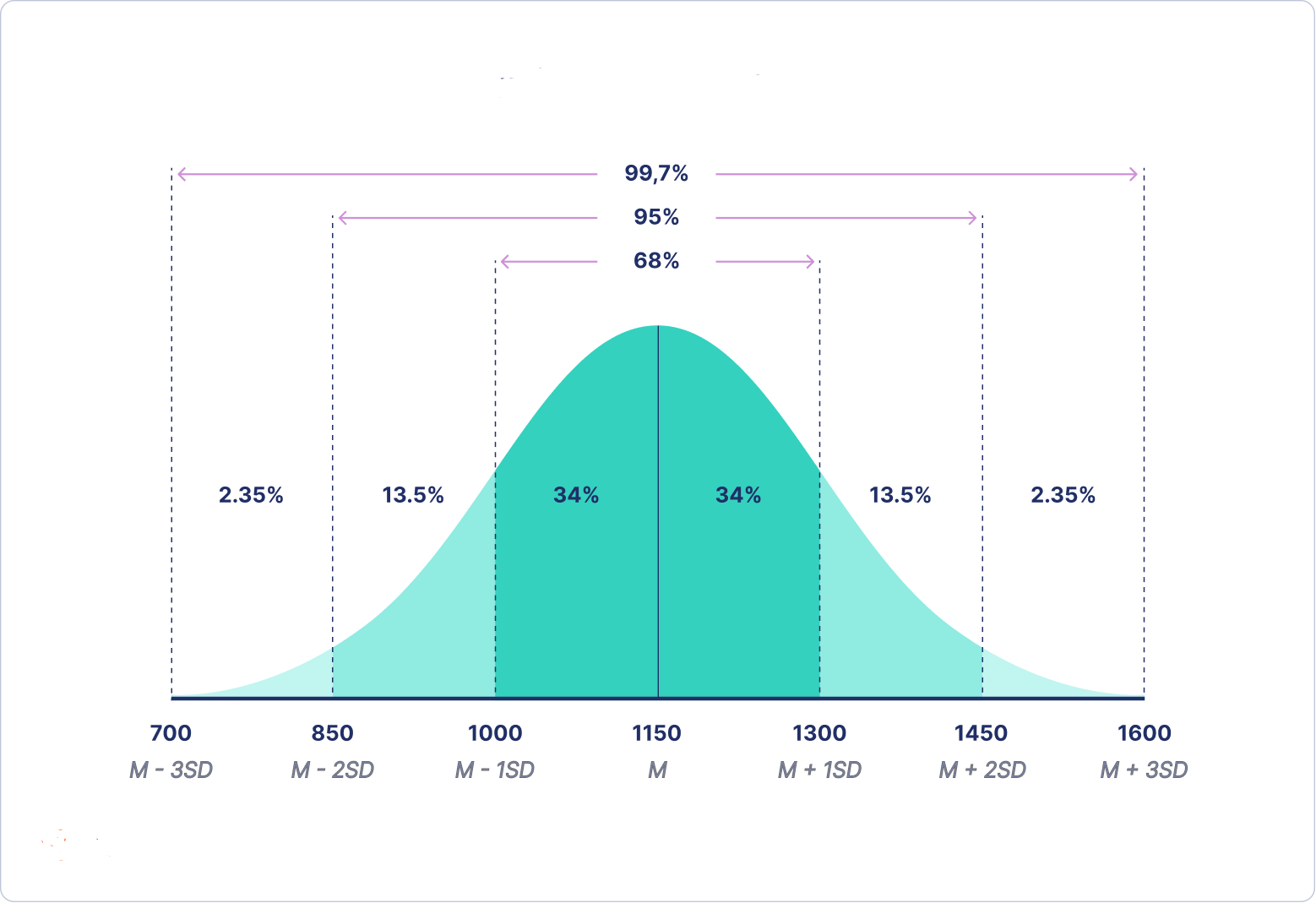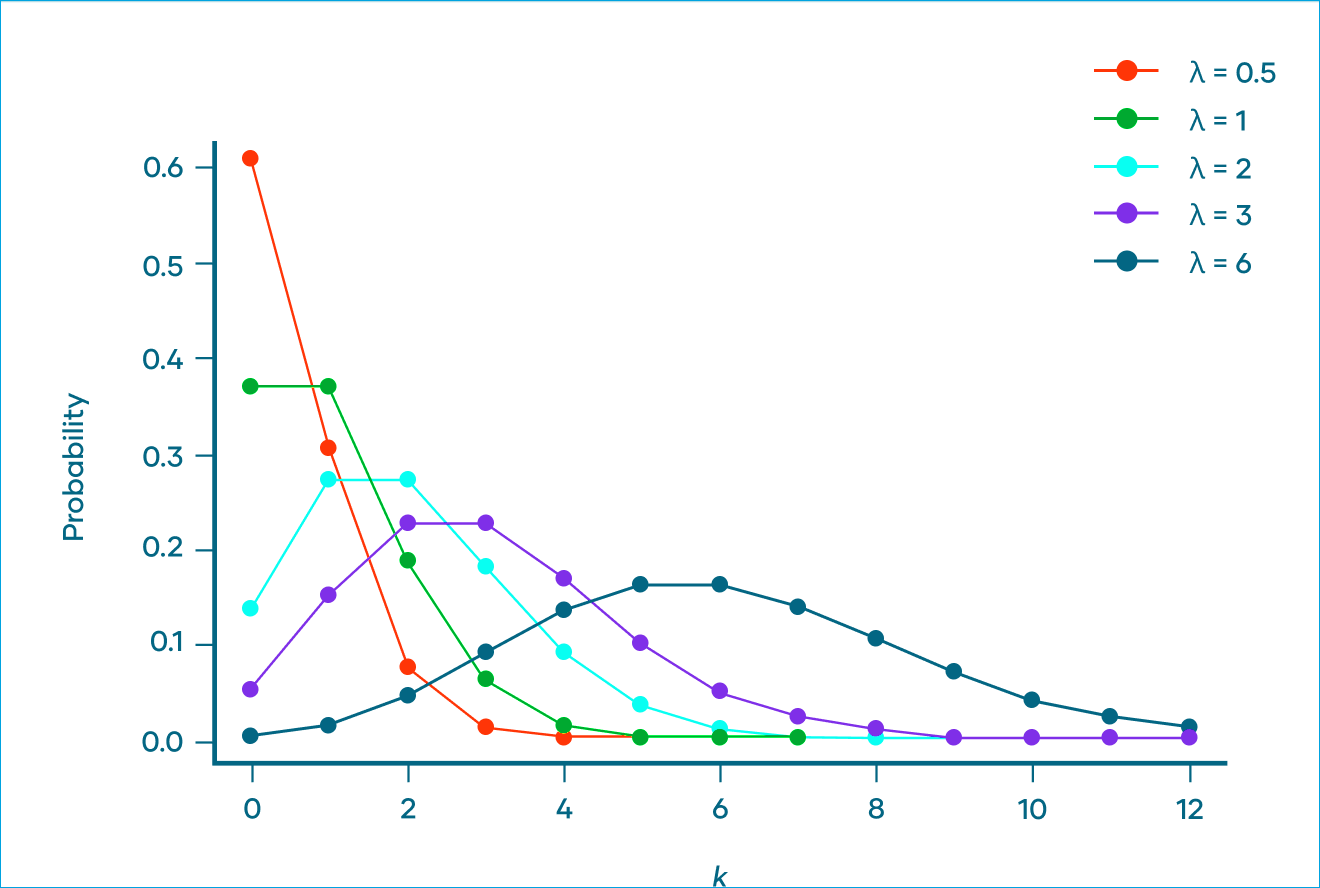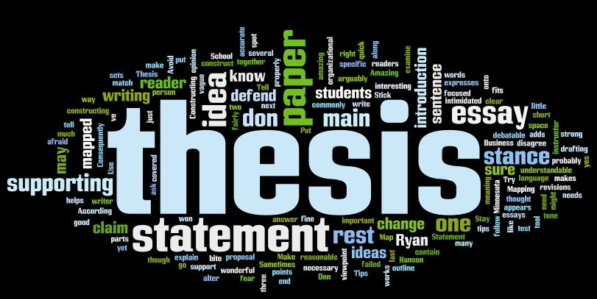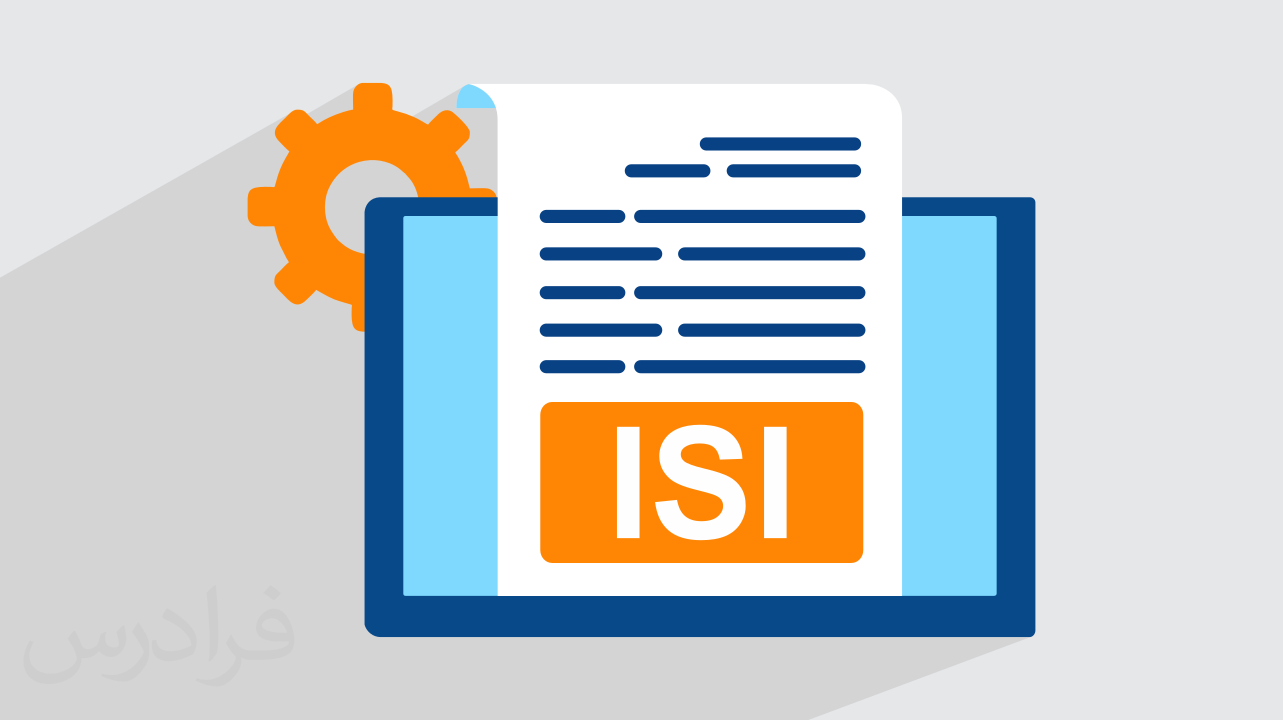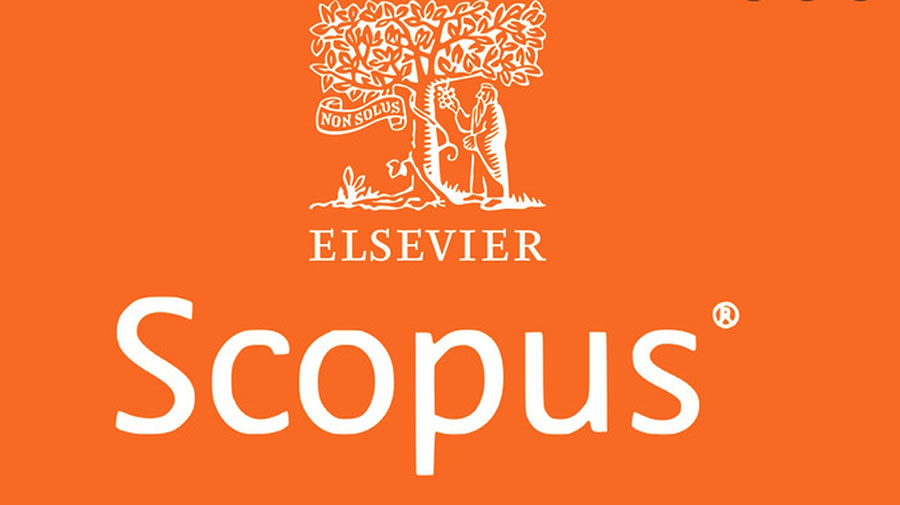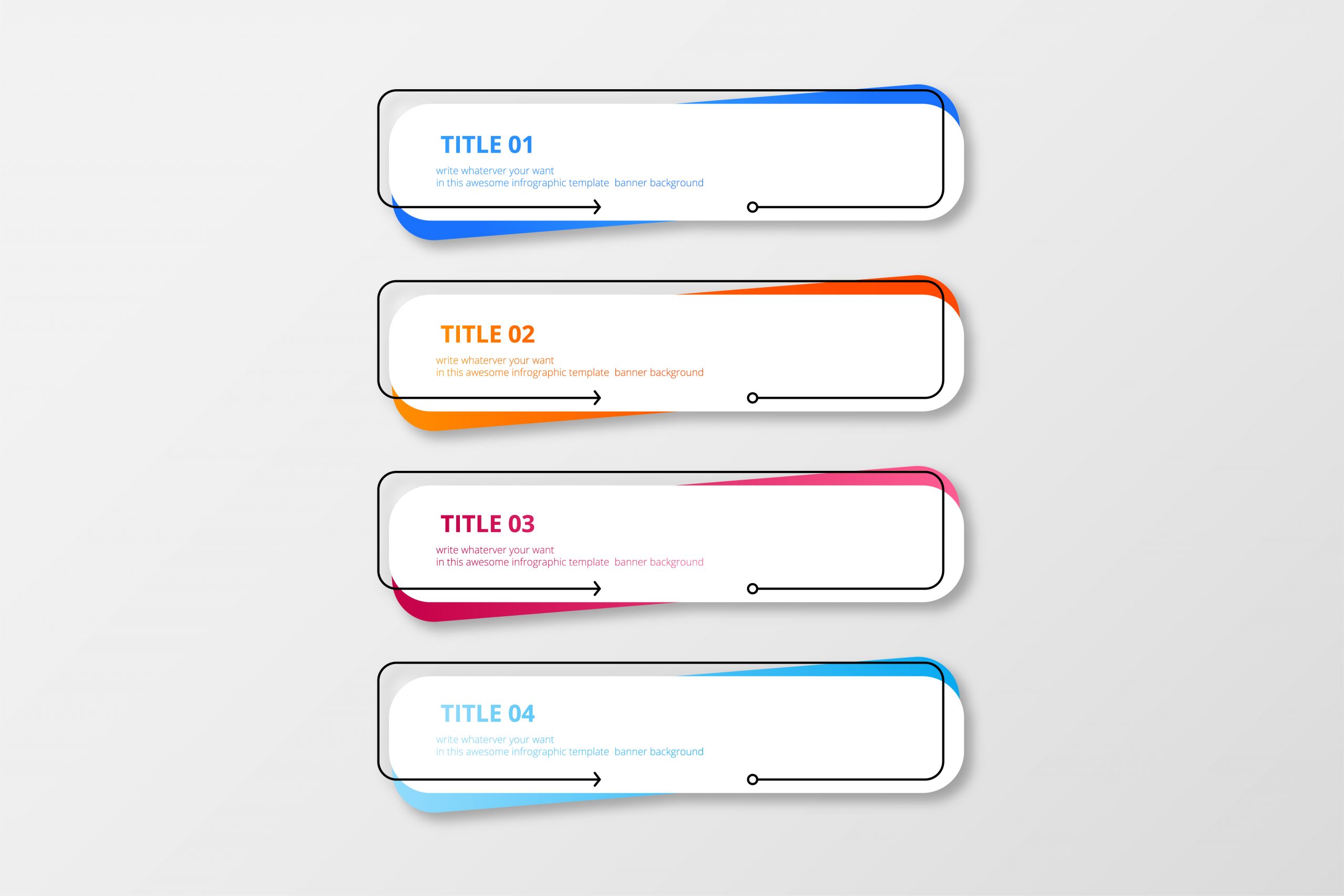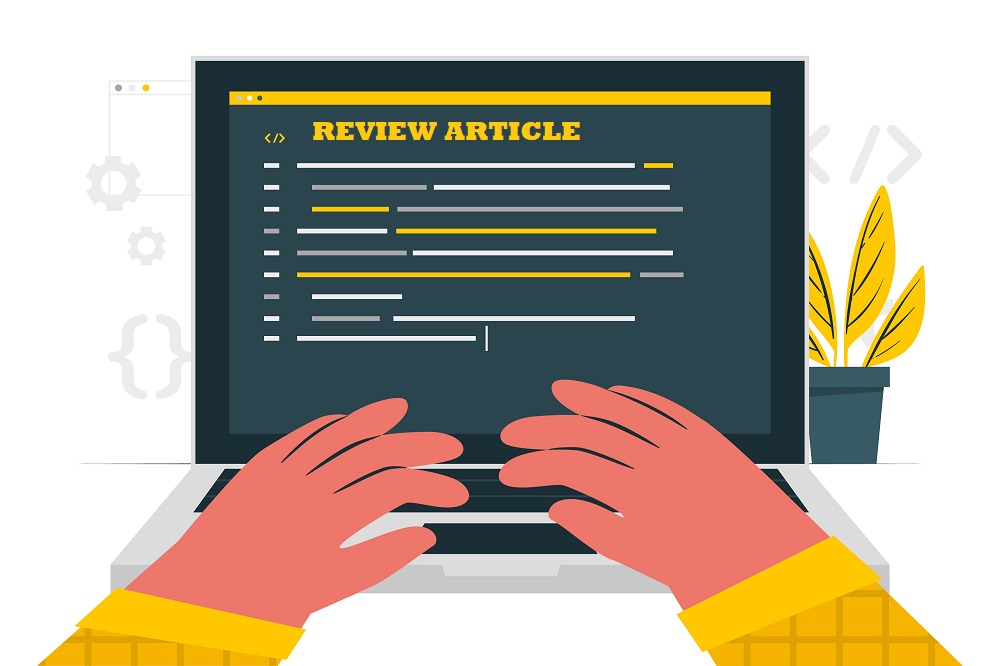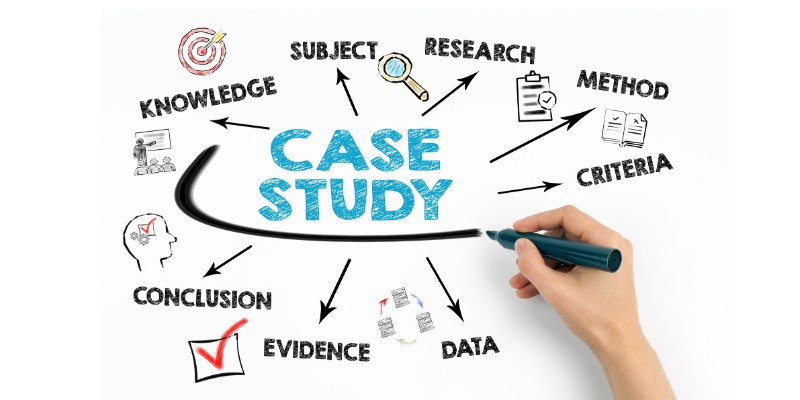What Is a Scholarly Source?
In the realm of academia, the term "scholarly source" is one of the cornerstones of credible and authoritative research. Understanding what constitutes a scholarly source is vital for students, researchers, and academics alike. This article delves into the definition, characteristics, types, and significance of scholarly sources, providing a comprehensive overview of their role in academic research. Definition of a Scholarly Source A scholarly source is a [...]
Evaluating Sources: A Comprehensive Guide
Evaluating sources is a critical step in the research process. Whether you are writing an academic paper, a report, or any other form of scholarly work, the credibility, relevance, and reliability of your sources significantly impact the quality of your research. This comprehensive guide explores the criteria for evaluating sources, the types of sources to consider, common pitfalls to avoid, and practical tips for ensuring the credibility of your [...]
what are some effective ways to disseminate a research paper to a wider audience?
Based on the search results, here are the key steps to get your research paper to a wider audience and increase its impact: Identify your target audience: Clearly define who you want to reach - experts in your field, policymakers, practitioners, the general public, etc. Understand their needs, interests, and preferences. Optimize your paper's visibility: - Publish in a high-impact, relevant journal that reaches your [...]
Writing Titles for Tables and Figures
When writing titles for tables and figures in a research paper, it is essential to be clear, concise, and informative. The title should accurately describe the content of the table or figure, making it easy for readers to understand the key information presented. Here are some tips for writing effective titles: Be Descriptive: Clearly state what the table or figure is about, including the variables, conditions, [...]
To speed up the article review process, authors can take several steps
By addressing these common reasons for delays in the article review process, authors can help expedite the review process and increase the chances of timely publication of their research. 1. Ensure manuscript quality: Submit a well-written, well-structured, and error-free manuscript that meets the journal's guidelines. 2. Format to journal style: Format the manuscript according to the journal's guidelines to minimize the need for revisions. 3. Make [...]
Golden Tips for Preparing Tables and Figures for a Research Paper
By following these golden tips, you can effectively present your research findings using tables and figures, enhancing the overall quality and impact of your research paper. 1. Decide on the format**: Determine whether a table, figure, or text is the best format for presenting your data, considering the type of information and journal guidelines. 2. Make them self-explanatory**: Ensure that tables and figures can be understood [...]
key points in effectively presenting research findings using tables, figures, and text
The key points in effectively presenting research findings using tables, figures, and text are: 1. Ensure tables and figures are self-explanatory and can be understood without referring to the main text. The titles, labels, and formatting should be clear and informative. 2. Use tables and figures to complement the text, not repeat it. The text should highlight the key points and significance of the data, without [...]
what are the common mistakes to avoid when submitting an article for review?
what are the common mistakes to avoid when submitting an article for review? Before submitting an article for publication, consider the following important points to make the judging process easier and increase the chances of acceptance: 1. Adhere to Journal Guidelines: Carefully read and follow the submission guidelines provided by the target journal regarding formatting, word count, referencing style, and any specific requirements. 2. Check for [...]
Dos and don’ts of the materials and methods section
The materials and methods section is a crucial component of scientific writing, as it provides a detailed description of how the research was conducted. This section should be clear, concise, and reproducible, allowing other researchers to replicate the study if necessary. When writing the materials and methods section, it is important to consider the following dos and don'ts: Do * Provide a detailed description of the [...]
What is the importance of materials and methods in a study?
What is the importance of materials and methods in a study? What must be observed? The importance of the materials and methods section in a study lies in its role in ensuring the reproducibility and reliability of research findings. This section provides a detailed description of how the experiment was conducted, including the materials used, procedures followed, and equipment utilized. By clearly outlining the research process, the materials and [...]
What factors should be considered when selecting a research method?
Choosing a research method is a crucial decision in the research process. It is important to consider several factors when making this decision. Key considerationFirstly, the research objective is a key consideration. If the research project aims to measure or test something, quantitative data collection methods are appropriate. On the other hand, if the aims and objectives are exploratory, qualitative data collection methods are more suitable.Significance of statisticsSecondly, [...]
Six Categories of Articles in Scientific Journals
What are the six categories of articles that are typically published in scientific journals? Scientific journals publish various types of articles, each serving a unique purpose and catering to specific research needs. This article explores six common types of articles published in scientific journals: original research articles, review articles, case reports, research articles, registered reports, and book reviews. Original Research Articles These articles are the most [...]
What does qualitative research entail
What does qualitative research entail? What key factors should be considered when conducting qualitative research and writing about it? Qualitative research is a type of research that uses observational methods to gather data about people's behavior, emotions, social interactions, and decision-making processes. It involves techniques like interviews, focus groups, participant observation, and field notes to study complex phenomena that are challenging to measure with numbers. Unlike quantitative research, which [...]
Crafting an Effective Title, Abstract, and Keywords
What is the significance of selecting the article title, abstract, and keywords? How should one go about making this choice? The title, abstract, and keywords are crucial elements of a research paper, as they play a significant role in the discoverability, readability, and impact of the paper. Here's why they are important and how they should be chosen **Title** The title is the first introduction readers [...]
Mastering the Art of Crafting an Effective Introduction for Your Article
In the realm of academic writing, the introduction serves as the gateway to your work, providing readers with a roadmap to navigate the complexities of your research. An effective introduction not only captures readers' attention but also establishes the context, significance, and objectives of your study. It sets the stage for the rest of your article, guiding readers through your arguments, findings, and conclusions. This comprehensive guide explores the [...]
Rethinking Journal Quality Metrics
Rethinking Journal Quality Metrics: Beyond Impact Factor In the academic world, the pursuit of knowledge dissemination and scholarly excellence is underpinned by the quality of journals in which research findings are published. Traditionally, the impact factor has served as the gold standard for assessing journal quality, but its limitations and biases have sparked debates about its efficacy as the sole indicator of scholarly merit. This article critically examines the [...]
Crafting Effective Article Titles, Abstracts, and Keywords
Crafting Effective Article Titles, Abstracts, and Keywords: A Guide for Academic Authors In the vast landscape of academic publishing, where competition for readers' attention is fierce, the importance of crafting compelling article titles, abstracts, and keywords cannot be overstated. These elements serve as the first point of contact between your research and potential readers, influencing their decision to engage with your work. This comprehensive guide explores the strategies and [...]
Understanding Impact Factor
Understanding Impact Factor: Its Significance and Importance in Academic Publishing In the realm of academic publishing, where knowledge dissemination and scholarly contributions are paramount, the concept of impact factor holds considerable significance. The impact factor serves as a metric to gauge the influence and reach of scholarly journals within their respective fields. It has become a ubiquitous tool used by researchers, institutions, and funding agencies to evaluate the quality [...]
Unraveling the Significance of Journal Ranking
Unraveling the Significance of Journal Ranking: Methods of Evaluation and Their Importance in Academic Publishing In the realm of academic publishing, where the dissemination of knowledge and the advancement of scholarly discourse are paramount, the concept of journal ranking holds considerable significance. Journal ranking serves as a tool for assessing the relative quality, impact, and prestige of academic publications within their respective fields. It aids researchers, institutions, funding agencies, [...]
Confronting the Predatory Journal Menace
Introduction: The rise of predatory journals poses a significant threat to the integrity of scholarly publishing. These unscrupulous entities exploit the academic community for financial gain, jeopardizing the credibility of research and tarnishing the reputation of legitimate journals. In this article, we will explore the various strategies and actions that should be taken to address the predatory journal problem, safeguard the academic community, and uphold the standards of scholarly [...]
Unmasking Predatory Authors
Unmasking Predatory Authors: Strategies for Identifying and Addressing Academic Misconduct Introduction: While the academic community is built on principles of honesty, integrity, and intellectual rigor, instances of academic misconduct, including predatory authorship, have emerged as a significant concern. Predatory authors engage in unethical practices, such as plagiarism, data fabrication, and fraudulent research, undermining the credibility of scholarly work. Detecting predatory authors is paramount to maintaining the trustworthiness of academic [...]
Identifying and Combatting Predatory Journals
Introduction: The scholarly publishing landscape has seen a surge in the number of journals in recent years, providing researchers with diverse platforms to share their findings. However, this proliferation has also given rise to predatory journals that exploit the academic publishing system for financial gain, jeopardizing the integrity of scientific research. Detecting predatory journals is crucial for maintaining the credibility of academic discourse and safeguarding the reputation of researchers. [...]
Unveiling the T-Distribution
Introduction: In the realm of statistics, the T-distribution, also known as Student's T-Distribution, stands as a fundamental tool for making inferences about population means when the sample size is small. Introduced by William Sealy Gosset in the early 20th century, this distribution has found extensive applications in various fields, including physics, finance, and medical research. In this comprehensive guide, we will unravel the intricacies of the T-distribution, exploring its [...]
Navigating Chi-Square (Χ²) Tables
Introduction: Chi-square (Χ²) tables are invaluable tools in statistical analysis, providing a structured framework for interpreting relationships between categorical variables. Developed as an extension of the Chi-Square distribution, these tables serve a crucial role in various fields, from biology and social sciences to quality control and genetics. In this comprehensive guide, we will explore the intricacies of Chi-Square tables, unravel their construction, and delve into real-world examples to highlight [...]
Understanding Chi-Square (Χ²) Distributions
Introduction: The Chi-Square (Χ²) distribution is a statistical concept that plays a crucial role in various fields, including biology, social sciences, and quality control. Developed by Karl Pearson in the early 20th century, the Chi-Square distribution is widely used to analyze categorical data and test hypotheses. In this article, we will delve into the definition of the Chi-Square distribution, its properties, and provide practical examples to illustrate its application. [...]
Academic writing
Academic writing requires precise language and clarity, which can sometimes lead to confusion in word choice. Here are some common word choice confusions that you might encounter in academic writing: Effect vs. Affect: Effect is a noun that refers to the result or impact of something, while affect is a verb that means to influence or change something. Effect vs. Affect: Some people confuse the verb affect with the [...]
Scholarly source
A scholarly source is a type of academic resource that is considered reliable and reputable in a particular field of study. This type of source is peer-reviewed by experts in the field, and it is held to a high standard of quality and accuracy. Scholarly sources are essential for academic research, as they provide a foundation for understanding the latest knowledge and developments in a particular discipline. [...]
AMA citation
AMA citation AMA is a widely used citation format for academic writing in various disciplines. It stands for the "American Psychological Association" citation style and is used to provide attribution to the works that have been used in a research paper. In this article, we will explore the basics of AMA citation and provide some tips for citing sources using this format. The Basics: AMA citation [...]
Unveiling the Finest Paraphrasing Tools
Unveiling the Finest Paraphrasing Tools: A Comprehensive Comparison of Free & Premium Options In a realm were information dissemination and originality reign supreme, the art of paraphrasing stands as a crucial skill. Paraphrasing tools emerge as valuable aids, promising to rephrase content while retaining its essence. However, the vast array of available tools, both free and premium, can confound users seeking the most effective solution. To navigate this landscape, [...]
A Comprehensive Guide to AMA Citation
A Comprehensive Guide to AMA Citation: Understanding, Formatting, and Implementation Academic writing demands precision, credibility, and adherence to specific citation styles. The American Medical Association (AMA) citation style stands as a cornerstone for scholarly publications in the medical and scientific fields. Known for its clarity and uniformity, mastering AMA citation is crucial for researchers, students, and professionals in the healthcare and scientific communities. In this comprehensive guide, we'll delve [...]
The Ultimate Guide to Summary Generators
The Ultimate Guide to Summary Generators: Tools Tested & Reviewed In a world teeming with information overload, the ability to distill and communicate the essence of a text has become a coveted skill. Summary generators emerge as invaluable aids in this pursuit, offering the promise of condensing lengthy passages into concise, digestible summaries. However, with an abundance of tools available, navigating the landscape of summary generators can be daunting. [...]
How Do AI Detectors Work?
Artificial Intelligence (AI) detectors have become integral in identifying and flagging various forms of content, from spam emails to hate speech and even deepfakes. These detectors leverage sophisticated algorithms and diverse methodologies to analyze and classify data. Understanding their methods and assessing their reliability is crucial in comprehending their impact and limitations in different domains. The Fundamentals of AI Detection Machine Learning and Training Data AI [...]
Best AI Detectors
Best AI Detectors: A Comparison of Free & Premium Tools Artificial Intelligence (AI) detectors have become indispensable in numerous domains, aiding in content moderation, fraud detection, cybersecurity, and more. With a plethora of options available, it's essential to compare the features, capabilities, and limitations of both free and premium AI detectors across different categories to assist users in selecting the most suitable tool for their needs. [...]
ChatGPT: An Asset with Limitations in Academic Writing
ChatGPT: An Asset with Limitations in Academic Writing The integration of artificial intelligence (AI) into various aspects of our lives has undeniably transformed the way we work, communicate, and create content. Among these innovations is ChatGPT, an advanced language generation model developed by OpenAI. While ChatGPT has proven to be a valuable tool in aiding writers, it's essential to recognize that it doesn't serve as a panacea for all [...]
Understanding the Legal Implications of ChatGPT
Understanding the Legal Implications of ChatGPT The advent of artificial intelligence (AI) has brought about a paradigm shift in various facets of human interaction, communication, and productivity. One such prominent AI application is ChatGPT, a language generation model developed by OpenAI. While this innovation has undeniably revolutionized communication, its implementation raises a myriad of legal considerations and implications that warrant exploration. Intellectual Property Rights One of [...]
Is ChatGPT Trustworthy?
Is ChatGPT Trustworthy? Artificial intelligence has transformed the way we interact, learn, and communicate. ChatGPT, developed by OpenAI, stands at the forefront of this revolution, offering conversational abilities that mimic human interaction. However, with any AI, questions about trustworthiness and accuracy naturally arise. Can ChatGPT be relied upon for accurate information and guidance? Unveiling ChatGPT’s Reliability The Foundation of ChatGPT ChatGPT, like many AI models, is [...]
Is Using ChatGPT Considered Cheating?
Exploring the Ethical Dimensions: Is Using ChatGPT Considered Cheating? In the realm of technological advancements, the integration of artificial intelligence into daily life raises ethical queries. ChatGPT, a conversational AI developed by OpenAI, provides unprecedented capabilities, leading to discussions about its ethical implications, particularly regarding whether its use constitutes cheating in various contexts. Understanding ChatGPT's Role AI as a Tool ChatGPT serves as a tool, leveraging [...]
Understanding the Implications of ChatGPT
Navigating the Legal Landscape: Understanding the Implications of ChatGPT As artificial intelligence continues to evolve and integrate into various facets of our lives, its legal implications have become a subject of intense scrutiny. ChatGPT, developed by OpenAI, represents a powerful conversational AI tool that raises pertinent legal questions. Understanding the legal landscape surrounding ChatGPT involves delving into several key areas. The Foundation of ChatGPT's Legality Intellectual [...]
Exploring the Limitations of ChatGPT
Exploring the Limitations of ChatGPT: Understanding Its Boundaries in AI-Language Models ChatGPT, a cutting-edge AI language model developed by OpenAI, has garnered attention for its remarkable ability to generate coherent and contextually relevant text. However, despite its impressive capabilities, ChatGPT, like any other technology, has its set of limitations. Understanding these boundaries is crucial to grasp the current state of AI language models and to manage expectations regarding their [...]
ChatGPT vs. Human Editor
ChatGPT vs. Human Editor: A Proofreading Experiment Unveiling Accuracy and Efficiency In the realm of language and text refinement, the advent of AI has sparked a conversation about its capabilities compared to human expertise. ChatGPT, a sophisticated language model developed by OpenAI, has demonstrated remarkable prowess in generating coherent and contextually relevant text. But how does it fare in the critical task of proofreading and editing when pitted against [...]
Understanding ChatGPT Citations
Understanding ChatGPT Citations: Formats and Examples Citing sources is a fundamental aspect of academic and research work, ensuring credibility, traceability, and respect for intellectual property. In the realm of AI-generated content, like that produced by ChatGPT, citations play a crucial role in acknowledging the sources of information and providing a pathway for readers to delve deeper into the referenced material. This article aims to elucidate the different citation formats [...]
Leveraging ChatGPT for Crafting Stellar College Essays
Leveraging ChatGPT for Crafting Stellar College Essays: Tips & Examples The process of composing a compelling college essay demands meticulous planning, creativity, and eloquence. In this digital age, harnessing the capabilities of AI, specifically ChatGPT, can be a transformative approach to refine and enhance your essay-writing experience. This article explores the effective utilization of ChatGPT in crafting college essays, offering practical tips and illustrative examples to assist students in [...]
Using ChatGPT in Your Studies
The advent of artificial intelligence has revolutionized how we approach learning and research. Among the myriad AI tools available, ChatGPT stands out as a versatile and resourceful assistant that can significantly enhance your academic journey. Whether you're a student striving for better grades, a researcher seeking insights, or an individual eager to deepen your knowledge, here's a comprehensive guide on how to effectively integrate ChatGPT into your studies. [...]
Enhancing Your Assignments with ChatGPT
Enhancing Your Assignments with ChatGPT: Tips & Examples As the educational landscape evolves, students are exploring innovative ways to optimize their learning experience. Among these, leveraging AI tools like ChatGPT has emerged as a game-changer in crafting assignments, expanding knowledge, and improving overall academic performance. This article delves into how ChatGPT can be utilized effectively for assignments, accompanied by practical tips and illustrative examples. Understanding ChatGPT's [...]
Understanding the Normal Distribution
Introduction: The normal distribution, often referred to as the Gaussian distribution, is a fundamental concept in statistics and probability theory. It plays a crucial role in various fields, from physics and engineering to social sciences and finance. In this article, we will explore the normal distribution in-depth, discussing its characteristics, properties, applications, and the mathematics behind it. The Basics of the Normal Distribution: The normal distribution, [...]
Understanding the Standard Normal Distribution
Introduction: The standard normal distribution, also known as the Z-distribution, is a fundamental concept in statistics and probability theory. It serves as a building block for various statistical analyses and hypothesis testing. In this article, we will delve into the standard normal distribution, explaining its key characteristics, applications, and how it simplifies statistical analysis. The Standard Normal Distribution - A Special Case: The standard normal distribution [...]
Exploring the Poisson Distribution
Exploring the Poisson Distribution: Applications and Properties Introduction: The Poisson distribution is a fundamental concept in probability theory and statistics. Named after the French mathematician Siméon Denis Poisson, this probability distribution model is widely used to describe random events and phenomena that occur over a fixed interval of time or space. In this article, we will delve into the Poisson distribution, examining its key characteristics, mathematical properties, and practical [...]
Demystifying Hypothesis Testing
Hypothesis testing is a cornerstone of statistical analysis, a method that allows us to draw meaningful conclusions from data. It helps researchers and decision-makers assess whether the patterns observed in their data are the result of a real effect or just due to random chance. In this comprehensive article, we will delve into the world of hypothesis testing, exploring what it is, how it works, and why it is [...]
Understanding Confidence Intervals
In the world of statistics, uncertainty is an ever-present companion. When you analyze data, you rarely have access to an entire population. Instead, you work with samples, drawing conclusions and making inferences about populations based on limited information. Confidence intervals are a crucial tool that helps you navigate this uncertainty, providing a range of values within which you can be reasonably confident the true population parameter lies. In this [...]
The Significance of Standard Error in Statistics
Standard error is a fundamental concept in statistics that plays a pivotal role in determining the reliability and precision of estimates derived from sample data. It is a measure of the variability or dispersion of sample statistics, such as the sample mean when compared to the population parameter. In this article, we will explore what standard error is, how it is calculated, and why it is essential in statistical [...]
Understanding Test Statistics
Test statistics are the unsung heroes of the scientific and statistical world. They provide a robust framework for hypothesis testing, enabling researchers, scientists, and data analysts to draw meaningful conclusions from data. In this comprehensive guide, we will explore the concept of test statistics, their role in hypothesis testing, and the different types of tests commonly used in various fields. 1. The Role of Test Statistics [...]
A Guide to Starting the Research Process
Research is an integral part of the academic and professional world. Whether you're a student working on a thesis or a business professional looking to gather market insights, understanding how to start the research process is essential. This guide will walk you through the steps and strategies for a successful beginning to your research journey. Define Your Research Goals The first step in starting the research [...]
Parameter vs. Statistic
When we delve into the world of statistics, two fundamental concepts emerge—parameters and statistics. These terms may seem abstract, but they are at the heart of statistical analysis. Understanding the key differences between parameters and statistics is crucial for anyone involved in research, data analysis, or decision-making. In this article, we will explore the meaning of these terms, their roles in statistics, and why they matter. [...]
University Policies on AI Writing Tools
University Policies on AI Writing Tools: Guidelines and Considerations In recent years, the integration of artificial intelligence (AI) into various facets of education has gained momentum, including the use of AI-powered writing tools. These tools offer valuable assistance to students and educators in the writing process. However, their adoption in educational institutions has raised questions about ethical and academic integrity, leading to the development of university policies to regulate [...]
What Is the Planning Fallacy
What Is the Planning Fallacy: Why We Overestimate and Underdeliver? The planning fallacy is a cognitive bias that affects how individuals estimate the time, costs, and risks associated with future tasks and projects. It describes our tendency to be overly optimistic when making predictions about the time and resources needed for a particular endeavor. In this article, we will explore the planning fallacy, its underlying causes, and how it [...]
Common English Mistakes in Dissertations
Writing a dissertation is a significant undertaking, and while content and research are essential, the quality of English used in your dissertation is equally crucial. English mistakes can detract from the overall quality of your work, making it harder for readers to understand your research and potentially affecting your grades. In this article, we will explore common English mistakes made in dissertations and provide guidance on how to avoid [...]
What Is Academic Writing?
Academic writing is a distinctive style of written communication that plays a fundamental role in the world of education, research, and scholarly discourse. It is a mode of writing characterized by its formal tone, structured organization, and reliance on evidence and research to support claims. In this article, we will delve into the essential characteristics and purposes of academic writing, its significance, and some key principles to keep in [...]
How to Write a college Essay
The college essay is a crucial component of the college application process. It offers you a unique opportunity to showcase your personality, experiences, and aspirations to the admissions committee. While it may seem daunting, writing a compelling college essay is not only achievable but also a chance to stand out from the crowd. In this article, we'll explore the steps and tips on how to write a college essay [...]
Language Rules to Improve Your Academic Writing
Academic writing serves as the cornerstone of communication within the scholarly world. Whether you are a student working on a research paper, a graduate student crafting a thesis, or a seasoned researcher publishing your findings, adhering to specific language rules is paramount for effectively conveying your ideas and contributing to the academic discourse. In this article, we will explore a set of language rules that can help you enhance [...]
How Do Plagiarism Checkers Work
Introduction Plagiarism checkers have become indispensable tools in the quest for academic and professional integrity. These software solutions play a pivotal role in ensuring that individuals produce original content and give proper credit to the works of others. In this article, we will demystify the inner workings of plagiarism checkers, shedding light on the technology that helps maintain honesty in academia and beyond. What Is a [...]
The 5 Types of Plagiarism
Introduction Plagiarism is a pervasive issue in academia and the professional world, often regarded as a breach of intellectual integrity. It encompasses a range of behaviors, from outright copying to subtle forms of appropriation. To combat plagiarism effectively, it's essential to understand its nuances and recognize the five primary types of plagiarism. In this article, we will explore these types in detail, shedding light on the diverse ways in [...]
Understanding Plagiarism
Introduction Plagiarism, often described as an unoriginal sin in academia and the professional world, is a serious ethical transgression that can have far-reaching consequences for individuals and institutions. This article explores the concept of plagiarism, its various forms, and the importance of understanding and avoiding it in both academic and non-academic settings. Defining PlagiarismPlagiarism is a term that is commonly used, yet it may not be [...]
CrossMark Activation Guide
CrossMark enables journals with a DOI to display article updates through a separate CrossMark button. This feature allows readers to easily find the current status of each article. This plugin displays various details, such as the list of authors, article submission date, and the article's update status. Steps to activate CrossMark: 1. First, create a page, preferably named "crossmark-policy." The sample content for this page is as follows: CrossMark [...]
Rovedar Journals Secure Long-Term Accessibility with PKP and Portico
We are thrilled to announce that the scientific Journals of Rovedar have taken a significant step forward in preserving and disseminating scholarly knowledge. We are pleased to inform our valued readers, contributors, and the academic community that the Journals of Rovedar are now archived in both the Public Knowledge Project (PKP) and Portico. This momentous achievement reinforces our commitment to long-term accessibility and ensures that our valuable research content [...]
Avoiding Predatory Journals
Safeguarding Your Research: A Comprehensive Guide to Avoiding Predatory Journals Introduction In the ever-evolving world of academic publishing, the rise of predatory journals has posed a significant challenge for researchers seeking to disseminate their work. Predatory journals exploit the open-access model, luring authors with promises of rapid publication but providing little to no peer review or editorial scrutiny. This article aims to empower researchers by providing a comprehensive guide [...]
Predatory Publishers
Introduction The proliferation of predatory publishers in the academic publishing landscape has become a pressing concern for researchers, scholars, and institutions worldwide. These predatory entities exploit the noble pursuit of disseminating knowledge and research findings for their own financial gain, threatening the integrity of academic publishing. To navigate this treacherous terrain, it is crucial for researchers to develop the skills and knowledge to identify predatory publishers effectively. This article [...]
Plagiarism
Plagiarism: Understanding the Consequences and How to Avoid It Introduction Plagiarism is a pervasive issue that affects the academic, professional, and creative realms. It involves the act of using someone else's work, ideas, or intellectual property without proper attribution or permission, presenting it as one's own. Plagiarism can have severe consequences, tarnishing reputations, and undermining the integrity of individuals and institutions. In this article, we will explore the various [...]
Predatory Journals
Predatory Journals: A Growing Threat to Academic Integrity Introduction In the realm of academic publishing, the emergence of predatory journals poses a significant threat to the integrity of scholarly research. These journals, often disguised as legitimate publications, exploit the desire of researchers to publish their work and gain recognition. However, they lack the essential peer-review process and ethical standards, leading to a host of problems for both researchers and [...]
Predatory Authors
Introduction The academic world is no stranger to misconduct and unethical behavior, and one of the most concerning phenomena within it is predatory authors. These individuals engage in a range of activities designed to manipulate and exploit the academic publishing system, casting a shadow on the integrity of scholarly research. In this article, we will explore the concept of predatory authors, their tactics, the consequences of their actions, and [...]
Quantiles and Quartiles
Exploring Quantiles and Quartiles Quantiles and quartiles are fundamental concepts in statistics that provide a valuable framework for understanding the distribution of data and its central tendencies. These tools are essential for summarizing data, identifying outliers, and making informed decisions based on the spread of values. In this article, we'll delve into the world of quantiles and quartiles, exploring their definitions, calculations, interpretations, and practical applications. [...]
Frequency Distribution
Understanding Frequency Distribution Frequency distribution is a fundamental concept in statistics that allows us to organize and analyze data in a meaningful way. It serves as a powerful tool for summarizing large datasets and gaining insights into the underlying patterns and trends within the data. In this article, we will delve into the intricacies of frequency distribution, exploring its definition, components, types, and practical applications. Defining [...]
Exploring Measures of Central Tendency
In the realm of statistics and data analysis, measures of central tendency stand as fundamental pillars for understanding the core characteristics of datasets. They provide insights into where the "center" of the data lies, aiding in summarizing and interpreting information. This article delves into the significance, types, calculation methods, and real-world applications of measures of central tendency, shedding light on their pivotal role in deciphering the essence of data [...]
Levels of Measurement in Statistics
Introduction: In the field of statistics, data plays a fundamental role in deriving insights, making informed decisions, and drawing meaningful conclusions. Before delving into statistical analysis, it is essential to understand the levels of measurement of the variables involved. The levels of measurement categorize data based on the nature of the data and the operations that can be performed on them. In this article, we will explore the four [...]
Variables in Statistics
Introduction: Statistics is a branch of mathematics that deals with collecting, analyzing, interpreting, presenting, and organizing data. In statistical analysis, variables play a crucial role as they represent the data’s characteristics or attributes. Variables can take on different forms, and their classification is essential for choosing the appropriate statistical methods and drawing meaningful conclusions. In this article, we will explore the various types of variables in statistics and their [...]
Data Cleaning
Data Cleaning in Statistics Introduction: Data is the backbone of statistical analysis, driving insights and decision-making in various fields. However, real-world data is rarely perfect and often contains errors, inconsistencies, missing values, and other issues that can lead to biased and unreliable results. Data cleaning, also known as data cleansing or data preprocessing, is a critical step in the data analysis pipeline that aims to detect and rectify these [...]
An Introduction to t-Tests
Introduction In the world of statistics and data analysis, t-tests are fundamental tools used to compare the means of two groups and determine if their differences are statistically significant. Whether you are conducting a scientific study, analyzing experimental data, or performing market research, t-tests can help you draw meaningful conclusions from your data. In this article, we will provide an introduction to t-tests, explaining their purpose, types, assumptions, and [...]
Akaike Information Criterion
Understanding the Akaike Information Criterion: A Powerful Tool for Model Selection Introduction In the realm of statistical modeling and machine learning, choosing the best-fitting model is a crucial step in the analysis process. The Akaike Information Criterion (AIC), named after its creator Hirotugu Akaike, is a widely used metric designed to facilitate model selection by quantifying the trade-off between model complexity and goodness of fit. In this article, we [...]
Statistical Significance
An Easy Introduction to Statistical Significance Statistical significance is a fundamental concept in statistics and data analysis. It helps researchers determine if the results of an experiment or study are likely due to a real effect or just random chance. In this article, we will provide a simple and accessible introduction to statistical significance, explaining its meaning, significance testing, p-values, and common misconceptions. What is Statistical [...]
Classification Research
Classification Research: Unraveling Patterns and Making Sense of Complex Data Introduction: Classification research is a powerful analytical approach that involves organizing and categorizing data into distinct groups based on shared characteristics or patterns. It is widely used in various fields, including machine learning, data mining, and statistics, to make sense of large and complex datasets. In this article, we will explore the key principles, techniques, and applications of classification [...]
Action Research
Action Research: Empowering Change Through Inquiry and Collaboration Introduction: Action research is a dynamic and participatory approach to research that emphasizes collaboration, reflection, and practical solutions to real-world problems. It is a process that brings together researchers and practitioners to identify, investigate, and implement strategies for positive change within specific contexts. In this article, we will explore the key principles, stages, and benefits of action research, highlighting its significance [...]
Causal Research
Introduction: Causal research is a robust and systematic approach to understanding cause-and-effect relationships between variables. It goes beyond mere observation and correlation to determine the underlying reasons behind a phenomenon. In this article, we will explore the key principles, methods, and applications of causal research, highlighting its significance in providing valuable insights for decision-making in various fields. By uncovering causality, researchers can make informed choices and design effective interventions [...]
Experimental Research
What is experimental research? Experimental research is a scientifically-driven approach that involves quantitative analysis and revolves around two sets of variables. The first set, called independent variables, is deliberately manipulated by the researcher to examine their impact on the second set of variables, known as dependent variables. By employing the experimental method, it becomes possible to assess the influence and manner in which independent variables affect dependent variables. This [...]
Descriptive Research
What is descriptive research? Descriptive research aims to provide a detailed description of the characteristics, behaviors, or attributes of a population or phenomenon being studied. This approach focuses primarily on the "what" rather than the "why" of the research subject. The main objective of descriptive research is to paint a comprehensive picture of the research subject by gathering and analyzing data related to its various aspects. It seeks to [...]
Correlational research
What is Correlational research? Correlational research is a non-experimental research approach where a researcher examines and measures two variables, aiming to analyze and evaluate the statistical connection between them without any influence from external factors. Correlational research Example The correlation coefficient provides a statistical measure of the relationship between two variables, ranging from -1 to +1. A value close to +1 indicates a positive correlation, while a value close to [...]
Historical Research
Exploring the Depths of Historical Research Introduction Historical research is a rigorous and illuminating methodology that enables scholars to delve into the past, unraveling narratives, events, and contexts that have shaped our present. This article explores the essence of historical research, highlighting its significance, key principles, and methods. By engaging in meticulous data collection, critical analysis, and interpretation of primary and secondary sources, historical researchers construct a nuanced understanding [...]
Exploratory research
Exploratory research is a type of investigation conducted when the problem under study is not well-defined. Its purpose is to gain a better understanding of the research problem, although it does not aim to provide definitive or conclusive results. In exploratory research, the researcher begins with a general idea and utilizes the study as a means to identify and explore issues that may serve as the focus for future [...]
Grounded Theory
Grounded Theory: Unearthing Meaningful Insights through Rigorous Qualitative Research Introduction Grounded Theory, a powerful qualitative research methodology, offers researchers a systematic approach to exploring and understanding complex phenomena. Developed by Glaser and Strauss in the 1960s, Grounded Theory has gained popularity across various disciplines due to its ability to generate rich, theory-driven insights. This article delves into the essence of Grounded Theory, highlighting its fundamental principles, key procedures, and [...]
Applied research
Applied research refers to a research approach wherein the researcher is already aware of the problem at hand. Its purpose is to address specific questions and find solutions. Each research project begins with a clear purpose that guides the chosen research methodology. Researchers can engage in either basic research or applied research. Applied research concentrates on finding answers to specific questions in order to solve particular issues. It aims [...]
Ethnography
What is Ethnography? Ethnographic writing requires a significant amount of time investment. The process of conducting research and analyzing data can span several months. Ethnographers immerse themselves in a specific community, residing among its members in order to gain an in-depth understanding of their culture. They carefully observe the behaviors and lifestyles of the individuals within the community. In addition to observation, ethnographers employ various methods to collect data, [...]
Hypothesis
Hypothesis Definition According to the definition provided, a hypothesis is a conjecture formulated based on existing knowledge. To elaborate further, it is a statement that takes the initial research question and transforms it into a logical prediction, relying on available facts and evidence. To address a specific problem, it is necessary to first identify the research problem (or research question), conduct preliminary research, and then proceed to answer the [...]
Cohort study
In 1951, Richard Doll and Austin Bradford-Hill initiated a groundbreaking research endeavor by contacting all registered doctors in the UK to inquire about their smoking habits. The British Doctors Study enrolled and tracked more than 40,000 participants, monitoring mortality rates and causes of death in the subsequent years and decades. Even with the release of the initial set of preliminary findings in 1954, there was already evidence linking smoking [...]
Protocol Study
Protocols play a crucial role in delineating the research plan for a clinical study. Various funding organizations, such as the Health Research Authority (NHS), encourage the dissemination of study protocols to create a comprehensive record of the methodology and reduce duplication of research efforts. In the upcoming document, we will present a thorough explanation of the steps involved in developing a protocol research study. A crucial element in any [...]
Social Media and Scientific Writing
The story of scholarly publication has changed as a result of the growth of social media. Academics are no longer constrained to exclusive conferences or the stale pages of scholarly publications. Through the power of social media, they may connect with other researchers who share their interests and gain input from users all over the internet. The field of scholarly publication has transformed because of social media, which has [...]
Short Communication Articles
The International Committee of Medical Journal Editors (ICMJE) does not provide a specific definition for short communications (also known as brief communications). However, generally, a short communication is considered to be a concise and independent report that makes a significant contribution to science. It is important to note that the terms "Short Communication" and "Special or Rapid Communication" are sometimes used interchangeably, but they have distinct differences, as explained [...]
How to Turn Your Ph.D. Thesis into a Successful Book
It is beneficial to undertake research as part of a PhD. It is beneficial to both the researcher, who has invested countless hours in the effort, and those determining whether the research should lead to the award of a PhD degree. However, can larger audiences benefit from the study? The short answer is yes; research done as part of a PhD is at the core of many successful academic [...]
Systematic Review Articles
What is a systematic review? Given the continuous rise in the number of studies being published in the field of health sciences, it becomes quite difficult, if not impossible, for busy clinicians and researchers to stay updated with the vast amount of literature. Consequently, reviews that provide a concise summary of the results from different intervention trials serve as an incredibly effective approach to obtain a clear understanding of [...]
How Researchers Can Increase Their Visibility
Once your research is published, your hard work as a researcher does not end. Increasing the visibility of your study is a responsibility of yours. This can be difficult and involves a lot of work. Although learning how to advertise your study can be awkward at times, the effort is worthwhile. A greater number of people finding your study may read it and contribute to it as more people [...]
Advantages of Performing Peer Reviews
Peer review is an essential step in the publication of scientific research and, by extension, in the practice of science. Many researchers, however, may be excused for wondering "Why should I become a peer reviewer" given their already extensive burden. This post will discuss peer review, why it is worthwhile to volunteer to be a peer reviewer, and how to get started. We will also learn about the opinions [...]
Comparison of ChatGPT and a Human Editor
In the previous post, we talk about the advantages and disadvantages of having a human editor or an AI tool like ChatGPT. In this post, we summarize the features of each and compare their features. Relevant and contextual editing The strengths of ChatGPT are its quick identification and correction of errors, uniformity in editing, and scalability. Large text databases can be analyzed, and it can learn from [...]
Human editors, or ChatGPT for Reliable Publication-ready Work?
ChatGPT was first developed as a writing tool, but it's now also making waves in the editing industry. But is it doing the job properly? It is free, efficient, and generally correct. Does this imply that it will supplant human editors? We can only learn more by making a thorough and unbiased comparison between the two. The production and distribution of text-based material have reached previously unheard-of levels thanks [...]
Free Format Submissions
Should you, as a researcher, focus on gathering information or on structuring your work in accordance with the requirements of the target journal? And not all journals support these formats. To maintain its publishing standards, each journal has its own set of technical and formatting guidelines that it adheres to. It might be challenging to keep up with the distinct stylistic and formatting requirements of each journal when you [...]
Manuscript Changes After Acceptance
Post-acceptance changes of manuscripts refer to modifications made to a manuscript after it has been accepted for publication but before it is published. Such changes can occur due to a variety of reasons, including suggestions or requests from the journal editor or reviewers, updates to the data or findings, or errors or omissions that need to be corrected. It is important to note that post-acceptance changes should only be [...]
Five Suggestions for Transforming A Conference Paper into a Journal Article
Learning how to convert a conference paper into a journal article is a worthwhile skill for any academic. Conference papers are a great way to present your findings to colleagues and get their feedback on improving your work. It is doubtful that your conference paper will be published as is because the publication of conference papers is uncommon. However, it can still serve as the base for a journal [...]
Human Translation or Software Translation?
Today, when we hear the word "translation", we usually think of Google Translate and similar tools. If we don't get the desired results, we turn to a professional human translator. Human translation is called natural translation, whereas translation carried out by computers and other smart tools is called software translation. What are the characteristics of natural translation? Although humans perform natural translation, the translator can use computers [...]
ISI Delisted Journals
The suspension of the largest journal from the MDPI publishing group by the ISI has arrived. It is time for serious combat against mega-journals. Recently, the ISI has removed the indexed journal International Journal of Environmental Research and Public Health (IJERPH; published by the large MDPI publishing group) from its list. This means that IJERPH no longer has an impact factor. Why is this very important news? [...]
What is SCOPUS Index?
Scopus indexing started in 2004, when it was launched by Elsevier, one of the world's largest academic publishers. Since then, it has become a leading bibliographic database for scholarly literature, covering a wide range of disciplines in science, technology, medicine, social sciences, and arts and humanities. Scopus indexes over 23,000 peer-reviewed journals, books, and conference proceedings from more than 5,000 publishers. It is widely used by researchers, academic institutions, [...]
Find a Good Journal for Manuscript Publication
Finding a good journal for manuscript publication can be a challenging task, but there are several strategies that you can use to increase your chances of success. Here are some steps you can take: Identify your target audience: Before you start searching for journals, you should first identify your target audience. Who do you want to reach with your research? This will help you to determine which journals are [...]
Rovedar Publication Services Can be Followed on Google News
We are excited to announce that Rovedar Publication Services website is now available on Google News. This means you can easily follow our latest updates and news by searching for our website on Google News or adding us to your Google News feed. We are thrilled to be part of this prestigious platform and look forward to bringing you even more quality content in the future. Thank you for [...]
ChatGPT as a Co-author: Ethics in a Scientific Manuscript
Since its beginning, ChatGPT has been drawing attention, bringing awareness to the increasingly complex capabilities of writing tools powered by artificial intelligence (AI). Although AI tools can be a great help when conducting research and writing, it remains to be seen whether they can take the position of human authors. While academia was still investigating the potential applications of AI tools, ChatGPT just made its official debut in the [...]
How to Choose the Best Proofreader or English Editor for an Academic Paper
Your research paper is complete. You've analyzed your data, described your procedures, presented your arguments, and handled any potential counterarguments. Academic English editing is the next phase, which most authors find difficult. It can be difficult to choose an academic English editor or proofreader. Finding someone who can fix your paper's grammatical and stylistic problems requires skill. Also, that person needs to be knowledgeable enough about academic paper editing [...]
Importance of English Language Editing
English Language Editing: Why It Is Important and How It Can Benefit You English language editing is essential to effective communication, particularly in academic and professional settings. The ability to clearly and accurately convey ideas in written form is crucial, and English language editing helps to ensure that the message is delivered effectively. In this essay, we will explore the importance of English language editing and how it can [...]
Reference Management Software Solutions for Your Research
Students, scholars, authors, and researchers all have to conduct a significant amount of research online. Managing and organizing so many references might be intimidating, especially if you're doing it manually because there are many different databases, online journals, and websites. Many reference management software applications make keeping track of your references a breeze. Here are the top 5 software determined by Rovedar Publication Services. Publication Services. EndNote [...]
Why Should Not Republish Translated Articles
It has become more and more common for authors to submit a translated piece that has previously been published in another language. How moral is it, though? In this article, we'll talk about secondary submission ethics and why it is improper to republish a translated version of an already-published work. We'll also look at how writers might stay clear of such transgressions while still having their work translated into [...]
Quick Guide to Designing Graphical Abstracts
Here are our top tips for designing graphical abstracts. Types of Graphical Abstract There are numerous ways to build a graphical abstract. Based on your methodology, your final graphical abstract will reflect your selected art and style. You should determine the type of your graphical abstract at the beginning. This will assist you in developing a genuine design that will best serve your needs. Types Of Graphical Abstract: Diagram: [...]
How to Publish an Article for the First Time
It can be difficult to write and submit your first academic paper. From creating an excellent paper to selecting a journal, navigating the submission process, and facing peer review, we have you covered with useful tips. Of course, you should also ensure that the article you post have an impact. Here, we condense their suggestions and compile helpful resources to guide you through publishing your first post. Practical advice [...]
How to Publish a Research Paper: A Manual for Publishing
Publishing your research is an important step in your academic career. While there is not a one-size-fits-all approach, this guide takes you through the typical steps in publishing a research paper. Discover how to get your paper published, from choosing the right journal and understanding what a peer-reviewed article is, to responding to reviewers and navigating the production process. Step 2: Writing your article Writing [...]
How to Extract the Article from Your Thesis
Turning your thesis into publication marks the beginning of your publishing career. Publishing an article post-Ph.D. is essential as this makes your research more accessible to others. One of the most important points to note is that writing an article from a thesis is not only a task of cutting and pasting. The aim and format of a thesis are very different from that of a journal article or [...]
Tips for Successful Academic Conference Presentation
How to get the most out of conferences? Academic conferences can significantly pave the way for your research career. They allow you to network, find new co-authors or collaborators, keep up with the most recent advancements in research, and gain a broader perspective on your area. However, it can be intimidating to attend a conference for the first time. If you are presenting your work at the conference, you [...]
Writing an Article: How to Write a Successful Research Paper
A crucial aspect of your academic career is publishing an article addressing the findings of your study. You'll be able to write a manuscript that is a perfect fit for the journal of your choice by paying attention to the advice and direction provided here. Know who you’re writing the article for Knowing which publication you want to publish your work in is crucial before you begin [...]
Footnotes and Their Use in Articles
While reading a book or article, have you ever noticed little numbers placed at the ends of some sentences? These numbers typically appear as superscripts and match up with numerals at the bottom of the page, which are followed by further, necessary, and supplemental information. This material can occasionally be found in the form of citations, but it can also be further notes (footnotes vs endnote) on the subject. [...]
Various Types of Open Access in Scientific Journals
Open access is an evolving path for scientific communication because it gives researchers maximum access to research related to their field and also helps the researcher to have a broader view of their research. So, scientific associations, investors, and many academics support open access and seek to raise awareness of its potential benefits. In recent years, free access has steadily gained momentum. Most magazines and publishers today have open-access [...]
Common Misconceptions about Open Access
Authors are often unsure about publishing their articles in open access journals. This is largely due to some common misconceptions about open access magazines. Here are some common misconceptions: Open access journals have a low impact factor: this is one of the most common misconceptions among authors. Many open access journals publish articles that are highly cited and receive high impact factors. For example, Living Reviews in Relativity has [...]
Article Pre-submission Checklist
When we look at the process of publishing an article and getting it to other researchers and relevant audiences, we conclude that perhaps writing your article is the easiest part of the process. In this article, we want to remind you of more details about how to publish the article and provide you with a checklist for submitting the manuscript to the journal. In this regard, when you follow [...]
Research Bias
Researcher bias is a situation that occurs when a researcher's point of view influences the results of a study. It can be developed during any stage of the research process, including the initial planning stage, theory development, data collection, and analysis. Types of researcher biases Design and selection bias Design and selection bias can occur in the early planning stage of the study. In this type of bias, the [...]
How to Choose a Journal for Your Article
After preparing a manuscript, your next step is to choose a journal for the publication of your research. Submitting a manuscript to an unsuitable journal is a common mistake, and can cause journal editors to reject the manuscript without even sending it for peer review. Choosing a journal that matches your study is thus very important because it helps the publication of your manuscript. In this post, we will [...]
Publication Identifiers
Publication identifiers provide information about an article or publication using a set of codes. A publication identifier is specifically useful for article, journal, or book. There are different types of publication identifiers. This article discuss some of the identifiers. What is an ISSN? International Standard Serial Number (ISSN) is a unique number used to identify a print or electronic periodical (journal) title, including newspapers, journals, and [...]
Vision and Mission of a Scientific Journal (part 2 )
Previously, we introduced the mission and vision of the Scientific Journal. Today, we talk about the questions that the editor-in-chief of a journal should answer to develop its vision and mission. What is the purpose of publishing a scientific journal? (Existential philosophy) The topic that is of great importance in this consideration is the philosophy of the existence of a scientific journal. Founders must have a precise argument and [...]
Plagiarism and Academic Publishing
Plagiarism involves any attempt to use the ideas, words, or work done earlier by other people, without giving them the credit. It is very important to remember when writing an article to cite all the resources you have used in your text. Most of the time, poor time management or time constraints force the researcher to steal large portions of content from other authors instead of spending time on [...]
Various Types of Research Articles
In the scientific literature, different types of articles are published every year. Original research articles are often the first thing you think of when you hear the word "journal article". In fact, research often leads to a complete mix of different outputs, and it is not just the final research paper that can be published. The types of publications are different in different fields. For example, clinical trials are [...]
Internal Policy and Instructions of Scientific Journals
Just as starting a career and establishing a professional team requires policy and instructions to guide current and administrative procedures. In this sense, scientific journals are no exception. In fact, these rules create uniformity in the scientific journal and the involved individuals know how to act. It can be said that these rules and guidelines help the managers and staff of the journal to make the best decision when [...]
References in Articles
Reference means the origin of the citation of any scientific article, which is one of the most important factors in accepting or rejecting a scientific article for publication in a specialized scientific journal. Reference is the first step to prevent plagiarism in writing. Providing references at the end of a scientific article indicates that it is valid. After writing an article, some researchers may decide to publish [...]
Manuscript Structure of Scientific Paper
Once you have completed your experiments, it is time to write it in a coherent and concise article that tells the story of your research. Articles usually follow a standard structure that allows readers to easily find the information they are looking for. In this article, we will discuss the standard structure and what to include in each section. Introduction Use this section to set your study [...]
5 Simple Tips to Write the Perfect Research Paper title
The title is perhaps the most important element of your research paper. The title is the first thing journal editors and reviewers will see when looking at your article, and it is the only information that fellow researchers will see in a database or search engine. Titles that are concise and contain all the relevant terms increase the number of citations. Readers come across research article titles in searches [...]
Journal Impact Factor
Impact Factor of a journal helps you decide if has the credibility you are wishing for publishing your article. Impact factor (IF) is a measure of average citation of an article in a journal per year. Hence, the higher the number of citations, the higher the ranking. So, IF can act as a powerful tool to compare journals by topic. Clarivate Analytics annually publishes the journal's impact factors as [...]
Levels of Evidence in Research Articles
While doing a project, you may find different levels of credibility to report scientific results. For example, using a systematic review or expert opinion to cite an argument is not the same. It is almost logical that the former shows more accurate results than the latter, that the information ultimately comes from the individual. For example, in the field of medicine and health care, it is important that professionals [...]
English Editing and Proofreading
This article explains the difference between editing and proofreading and provides some tips and strategies for revising your writing. Examining these tips will allow you to carefully correct or rewrite your article. What is the difference between editing and proofreading? Although many people may use these terms interchangeably, editing and proofreading are two different steps in the review process. Both require careful reading, but focus on different [...]
From Writing a Scientific Article to Final Decision
In this article, you will learn how to write a scientific article for publication and then prepare it for submission. In previous articles, we have explained the different sections of an article to you. Today, we want to review your findings and conclusions on research submissions, scientific illustration, research ethics, and how your article looks by compiling it as an SEO research article. After that, we explain the review [...]
What is Citation?
If you want to do research, you have to search the literature to find out what has been done about your subject before. You should add these citations to your research proposal. By reviewing these citations, the reviewers will find out if you have read some of the critical research papers. Why is citation important? Quotes show the breadth and depth of your research. That alone [...]
Importance of Effective Writing in Scientific Articles
Important and key points in writing an article are among the things that if you know and master in using them, you will be able to attract more audience to read your article. Writing one or more articles with different scientific topics is time-consuming and tedious, which will also reduce the quality of the article. Therefore, applying these points in writing an article is a shortcut and makes the [...]
The Importance of Translation
The importance of translation in our daily lives is widely multidimensional. Translation not only paves the way for global interaction, but also allows countries to build interactive relationships as they advance in technology, politics, and so on. Although English is a popular language nowadays, the influence of local culture and language remains strong. With the growth of the Internet and communication technology, it is relatively easier to reach an [...]
The Difference between a Statement of Purpose and a Personal Statement
in Do you know the difference between a personal statement and a statement of purpose? This article offers all of the information you need to ensure that your acceptance article is written correctly. Every postgraduate applicant will very certainly be required to submit a statement in support of their candidacy. In certain circumstances, you will be requested to submit a personal statement, while in others, a letter of intent [...]
Writing a Review article
A review article is a review of previously published research on a particular topic. It should provide an overview of current thinking on the topic and and does not contain new empirical data. Be. The purpose of reviewing the literature is to help researchers find new areas of study for further study, and they can also draw new conclusions from current data. You may be asked to submit a [...]
How to Survive in Academia: Publish or Perish
The ultimatum is well known to academics: publish original research, or risk damaging your reputation—or even losing a professorship. The phrase publishes or perishes dates back to 1942 when a sociologist named Logan Wilson used it in a book studying academia as a career. At the time, he described the "publish or perish" credo as a "prevailing pragmatism forced upon the academic group," and it still feels this way [...]
Checklist for Submitting Articles to Journals
If the golden rule of academics is "publish or perish," then preparing a journal article for publication is akin to death. The reason is thousands of paper cuts and a slew of flaws ranging from wrongly cropped photographs to text . The ultimate journal article submission checklist will help you organize, chronologize, and prioritize each stage of article preparation for journal submission. At this stage, you should have already [...]
How to Handle Rejections from Academic Journals
You did the research and you conducted the study. You still remember that first morning at your desk: a mug of coffee steaming to your right and reams of crumpled notes to your left, next to a stack of articles marked up and highlighted beyond recognition. The way that blank white screen glared back at you, mocking you. Judging you. That moment of apprehension as you typed the first [...]
Common Reasons for Journal Rejection
Every researcher aims to publish their work in a high-impact journal. However, publishing research is no easy task, and manuscript rejection is a common occurrence in academic publishing. Every researcher faces rejection of their manuscript at some point in their career. Every failure is a stepping stone to success, and researchers can learn from their mistakes to ensure a smooth publication for their next manuscript. Several peer-reviewed studies have [...]
Case Report (Part 2)
In the previous post, we talked about the main aspects of case report. Today, we are elaborating on more points that can help you develop your case report . Author Contributions Providing more clarity about authors increases transparency report , allows researchers' recognition, and increases accountability for all involved parties . However, you do not need to include an Author Contributions section in your manuscript. Acknowledgements section can include [...]
Case Report (Part 1)
a medical case report, often known as a case study, is a comprehensive account of a patient encounter. The most crucial part of a case report, and the reason you'd bother to write one, is that the situation is sufficiently unique, rare, or intriguing that other medical professionals can learn from it. Criteria Firstly, a medical case report should be unique and provide [...]
Meta-Analysis (Part Two)
In a meta-analysis, the first step is to determine the kind of outcome(s), which is either binary or continuous. Relative risks, ORs, and hazard ratios, as well as the absolute risk difference and its inverse, are the most common dichotomous outcomes (ie, the number needed to treat). Mean differences and normalized mean differences are the most common continuous outcomes; the latter is employed when research uses different scales or [...]
Meta-Analysis (Part one)
Meta-analysis occurs when a review is carried out in a predetermined order (i.e., methodically) and the results are quantitatively assessed. Meta-analyses have become more widely published in recent years, with 1,473 titles published in 2007 and 176,704 in January 2020. Clinicians, researchers, and policymakers can benefit from well-designed and presented meta-analyses. Therefore, this article also serves as a guide for authors to learn about the important elements [...]
Top Tips for Designing Graphical Abstracts
In this article we are trying to address tips that you need to know for designing a graphical abstract. 2. Create your graphical abstract with the right tools After you've decided on a sort of graphical abstract, you'll need to select the correct tool to create it. You'll need a tool that allows you to search for shapes and visuals that are relevant to your [...]
How to Paraphrase the Scientific Papers: Principles and Strategies
As if the research process was not difficult enough finding relevant and trustworthy sources, reading and evaluating material, and picking crucial quotations/information to support your paraphrasing findings/arguments academic writers and students also have to worry about correctly documenting their sources. Failure to do so, whether on purpose or by accident, may result in plagiarism, a serious academic infraction. To prevent plagiarism allegations, you must not only properly record your [...]
Frequently Misunderstood Parts of a Research Report
Each section or piece of your paper has a specific purpose and is written to highlight the most relevant components of your research. This article will clarify some of the most frequently misunderstood aspects or elements of a manuscript, such as the Abstract and Introduction, Aim and Objectives, the Literature Review, and more. The provided information in this article will aid in your comprehension of these frequently misunderstood aspects [...]
What Makes Academic Writing Different from other Types of Writing
It is easy to slip into the trap of heavily written academic terms while learning the mechanics of formatting an academic paper. However, in an attempt to make your writing appear more scholarly, you may end up obscuring your point and frustrating your reader. The first section of this paper discusses the differences between academic and other styles of writing. The second section discusses the ten academic phrases [...]
How to respond to peer-reviewers
When you submit your research paper to a peer-reviewed journal, you will probably be nervous to hear the editor's decision. If you are ready to deal with them practically, the journal's verdict and your fellow judges' opinions should not upset you. In this article, we give you some hints to effectively respond to the editors/reviewers' comments. Tips for responding to reviewer comments As an author, you may [...]
Email Academics in Your Field
Sending an email to an expert in your area can be challenging. Knowing good academic email etiquette can help you create a solid first impression, whether you're a postgraduate student seeking a supervisor for your dissertation or an industry professional looking for a joint job opportunity. In this article, we'll offer some advice on email decorum, preparation, and eliciting your desired reaction. Conduct research before sending Email Before starting, [...]
Tracking the status of your paper in journal submission systems
Most journals have online submission methods, which have made submitting manuscripts much easier and faster for writers. Online submission has fully eliminated the risk of postal delays, which was previously a stumbling block. Furthermore, online submission has reduced the need for several emails. The online article tracking system allows authors to watch their manuscript's progress after submission. Authors start to worry after submitting their work, therefore, it's common to [...]
Why the Peer-review Process is Done?
What is the importance of peer-review process? The peer-review process aims to ensure the publication of useful and high-quality scientific articles for the scientific community. The peer-review process may lead to the rejection or revision of the manuscript. Although this step may be of concern to the authors, the revisions improve the quality of the manuscript. Peer-review is a process that confirms the scientific validity of the [...]
Vision and Mission of a Scientific Journal (part 2)
Previously, we introduced the mission and vision of Scientific Journal. Today, we talk about the questions that the editor-in-chief of a journal should answer to develop its vision and mission. What is the purpose of publishing a scientific journal? Who is the audience of a scientific journal? What does the scientific journal publish? How to present the content of a scientific journal? [...]
Vision and Mission of a Scientific Journal (part 1)
Vision and Mission of a Scientific Journal Generally, scientific journals should have a strong argument for publication as the vision of a scientific journal. The mission and vision of a scientific journal should address all individuals (readers, authors, editors, and editors) as well as sponsors of scientific journals to meet the goals. Although vision writing is an important part of establishing a scientific journal, some changes may be made [...]
Preparing an Article for Submission
Success is no accident. What are the most common mistakes that writers make when submitting an article to a journal? In the previous post, we talked about 12 common mistakes authors can follow to improve their writing skills. Today, we review some most common mistakes that every writer may make at the time of submission. Understanding and detecting common mistakes that may occur in an article can improve your [...]
12 Effective Tips to Improve Your Article Writing Skills
Improve Your Article Writing Writing is a skill that requires practice to develop. You can develop this skill by writing daily. The most important thing you need to care about is grammatical and spelling mistakes. Try to tell things in a clear and comprehensive way. One of the basic tips to enhance your article writing is by doing writing practice and reading other writers’ written works. You should notice [...]
Poor English Writing and Its Effect on Research Publication
Poor English can hinder the publication of research. Recent studies have indicated that poor English is a factor that puts some scientists in a difficult position. Examining some articles, one can see that some poorly written articles are difficult to evaluate. Poor English not only includes explicit spelling, grammar, and punctuation errors, but also run-on sentence structure, incorrect phrases, and odd words. The mentioned issues may distract the readers and [...]
Editing More than 200,000 Words a Day
Send us Your Manuscript to Further Your Publication.







































